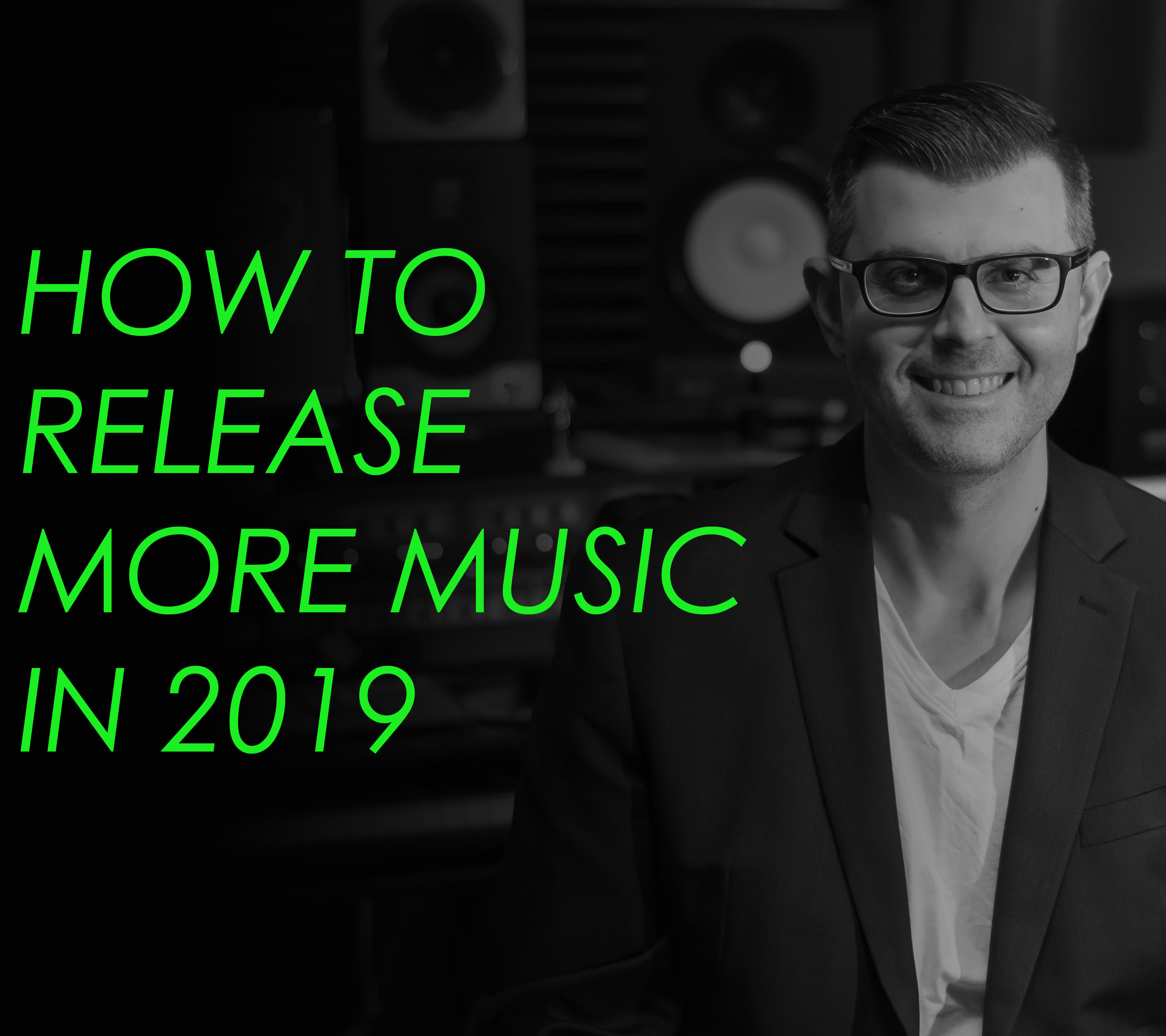Everyone wants to release more music, more often. With my latest article, I will give you my tips on how you can release more music in 2019. There’s no question that currently, modern music trends are geared towards frequent single releases, as opposed to the traditional album format. Here’s my thoughts on how you can meet those industry trends and put yourself in a position to release more music:
COLLABORATE
Recording artists have always utilised collaboration to not only release more music, but to expand their creative horizons. This has never been more prevalent than in today’s musical climate. Collaboration has become a genuine method of both increasing release frequency, but to assist in building a fan base. Cross-promoting amongst artists is a great way to reach new fans and providing it’s done correctly, can be a fast-track to growth. Some of the most famous world-wide smash hits have been collaborations of unlikely sorts. Take “Walk This Way” by Aerosmith and Run DMC. One would rarely think that a rock band and rap artist could collaborate in such a successful way, but this is sure-fire proof! My recommendation is to start by reaching out to artists at a similar level to where you’re at and explore the prospect of working together and don’t feel as though you have to stay within the confines of your genre!
OUTSOURCE
The term ‘outsourcing’ probably sounds like more of a business term. However, outsourcing in the music industry is an important aspect of leveraging your skill set and maximising your time doing the things that you’re both good at and enjoy. A great way to approach it, is to think about those areas of recording and production that perhaps are not your strongest points. I would then suggest researching available musicians/contributors that can become part of your ‘outsourcing’ team and help take care of those tasks that are laborious for you. For example, you may get frustrating with mixing and want to remove that aspect from your workflow. Adding a mix engineer will not only free up your time, but will give you fresh ears on your song and improve your overall production quality.
DEMOS & EFFICIENCY
It’s important to have a fast and efficient method for recording demos. The last thing you want to do is to get bogged down at this early stage of the production, this can seriously stifle the creative process and reduce your capacity to release more material. My recommendation is to have a simple, effective and accessible method for recording a demo. It’s important to remember that a demo is supposed to be a rough sketch of the song, not the finished product. Once you start going down the production rabbit hole at the demo stage, you will find yourself in a sea of partially finished material and will be left demotivated! Make sure your demo process allows you to record a version of the song that is easy to reference, all parts are clearly audible and the song structure is fairly solid. This will be another step towards fast tracking a regular release schedule!
FOCUS ON STYLE
Depending on how eclectic or diverse the genre your working in, taking the time to focus on a particular style can help you narrow down the options and get your music project moving faster. One of the major benefits of having a familiar style is that you can setup recording templates to work from that provide a great foundation to work from. In my experience, this approach tends to work best with short term projects (such as EP’s with up to 4-5 tracks). Once you have a template aesthetic to begin with, you can quickly build upon that and have a series of songs ready for a staggered release schedule. The reason I think this method is only good for short term growth, is because the process is at risk of becoming stale, due to the repetitive nature of the production. It’s also a great approach if you’re feeling particularly inspired and feel that you have a lot of ideas to get out, but you want to spread them out over a number of songs.
KEEP IT SIMPLE
Yes, friends. Keep it simple. Having an efficient and familiar process is all about simplicity. The core of this comes from knowing your message and end goal. If you’re confused about what you want the end result to be, you will continually find it difficult to make progress and release music regularly. Once you have solidified your ‘why’, this becomes the strongest foundation for having a focused direction. After all, if you don’t know where the goals are, how can you score?
All the best with your music releases for the remainder of 2019!
Until next time,
Mike






Excellent information !